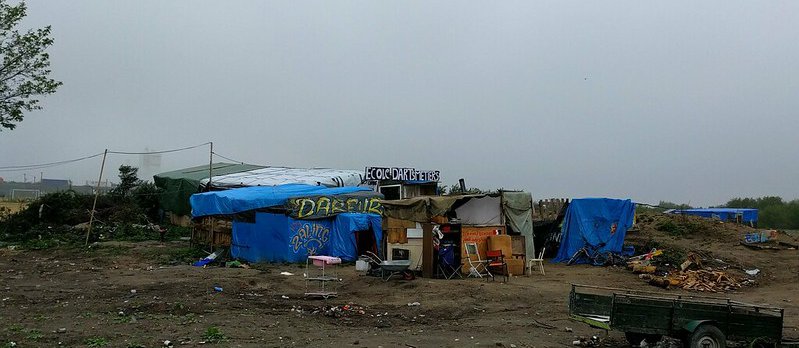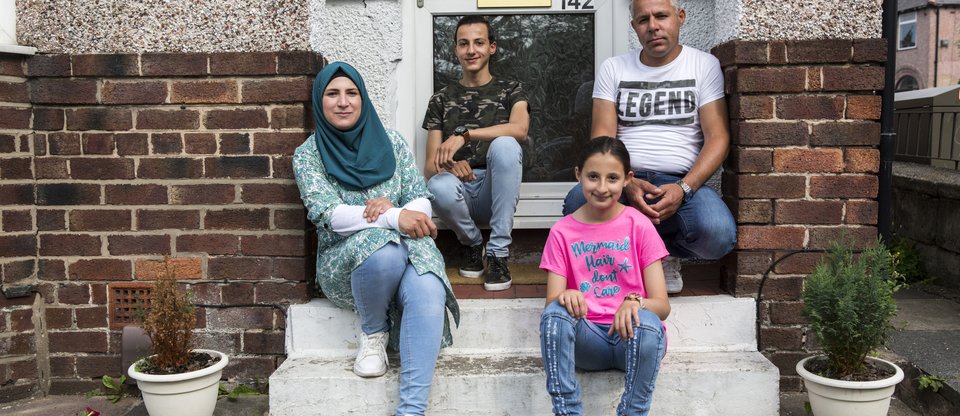Safe Passage for child refugees
In the summer of 2015 British TV screens and papers were inundated with images of refugees in Calais, France, trying to reach the UK.
With political rhetoric becoming increasingly dehumanising, and with Prime Minister David Cameron describing the people there as a “swarm” of migrants, the Calais solidarity movement began.
Visiting "the Jungle"
In September that year Citizens UK Lead Organiser George Gabriel supported a small group of community Leaders to visit “the Jungle” (an informal refugee camp in Calais). While many were there to deliver urgently needed food, shelter and supplies, the team from Citizens UK went with a question. They went to ask refugees why – when Germany and Sweden were opening their borders to refugees – they would risk their lives scaling barbed wire to climb onto high speed trains and lorries in the hope of reaching the UK.
What we heard again and again was that people, particularly unaccompanied minors, had gathered in Calais in order to reach family members living in Britain. Refugees in the camp, led by Syrian Abu Omar, at our invitation began to organise – developing a census detailing the names, ages, and family members belonging to unaccompanied minors all across the camp.
Looking into the law
On their return to the UK, the team from Citizens UK connected with Sonal Ghelani at the Migrants' Law Project, Mark Scott at Bhatt Murphy Solicitors and Charlotte Kilroy at Doughty Street Chambers with their respective teams. Sharing their insights the teams came to believe that the failure to reunite children with close family members in the UK safely constituted an acute failure in the legal system designed to fairly and humanely manage asylum claims for those arriving in Europe.
Over the next months they began the campaign for these children to be brought to Britain. In January 2016 we won a ground-breaking case (ZAT) to see the first three boys and one vulnerable adult brought to the UK safely to reunite with their families.
Following the ZAT ruling and major coverage of the plight of minors, the campaign to protect child refugees grew rapidly. We worked closely in support of Lord Alf Dubs and an amendment to the Immigration Bill, which successfully forced the Government to admit a share of the unaccompanied minors arriving in Europe without family connections. His amendment also helped pressure the Government to create an additional resettlement route for some 3,000 minors directly from the Middle East and North Africa (MENA).
Building a collation
Over the coming months our Organising team, working with Leaders like Rabbi Janet Darley and leading refugees like Abu Omar, built a coalition that spanned every major political party, all major faith traditions, celebrities, lawyers, local authorities, international agencies and health care workers.
With tension growing through 2016, our campaigns finally broke through. In October 2016, 1,000 children were brought to Britain, as the Calais Jungle was demolished. Hundreds of Citizens UK leaders turned out in Croydon each day to welcome them as they arrived. Over subsequent years, over 5,000 children reached safety through Dublin, Dubs and MENA schemes and eventually, Safe Passage was spun off into a separate organisation.
In 2017, a year after the demolition of the Jungle, some of the teens who had been given safe passage went to Parliament to thank the British people with a plaque.
This work was recognised in 2016 with a European Citizen’s Award from the European Parliament, a Sheila McKechnie Social Justice Campaigners Award, the Liberty More In Common Human Rights Award, the Ockenden International Prize and more.
Over the years we have done so much work to resettle refugees in the UK. Our biggest project is community sponsorship.






